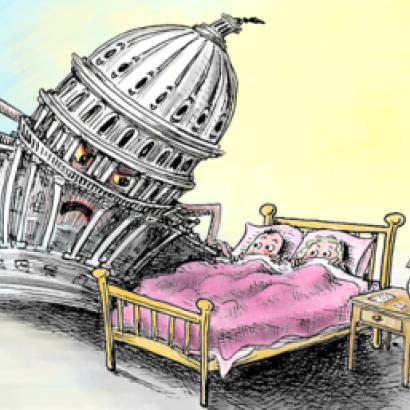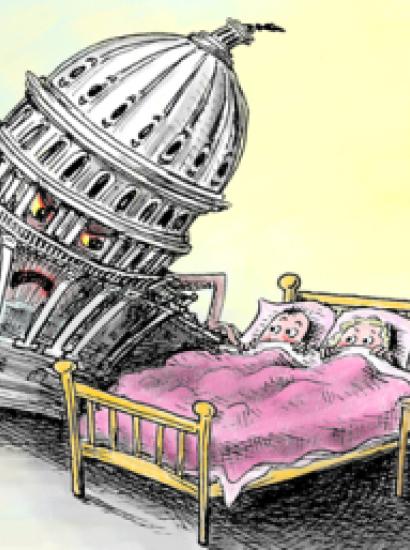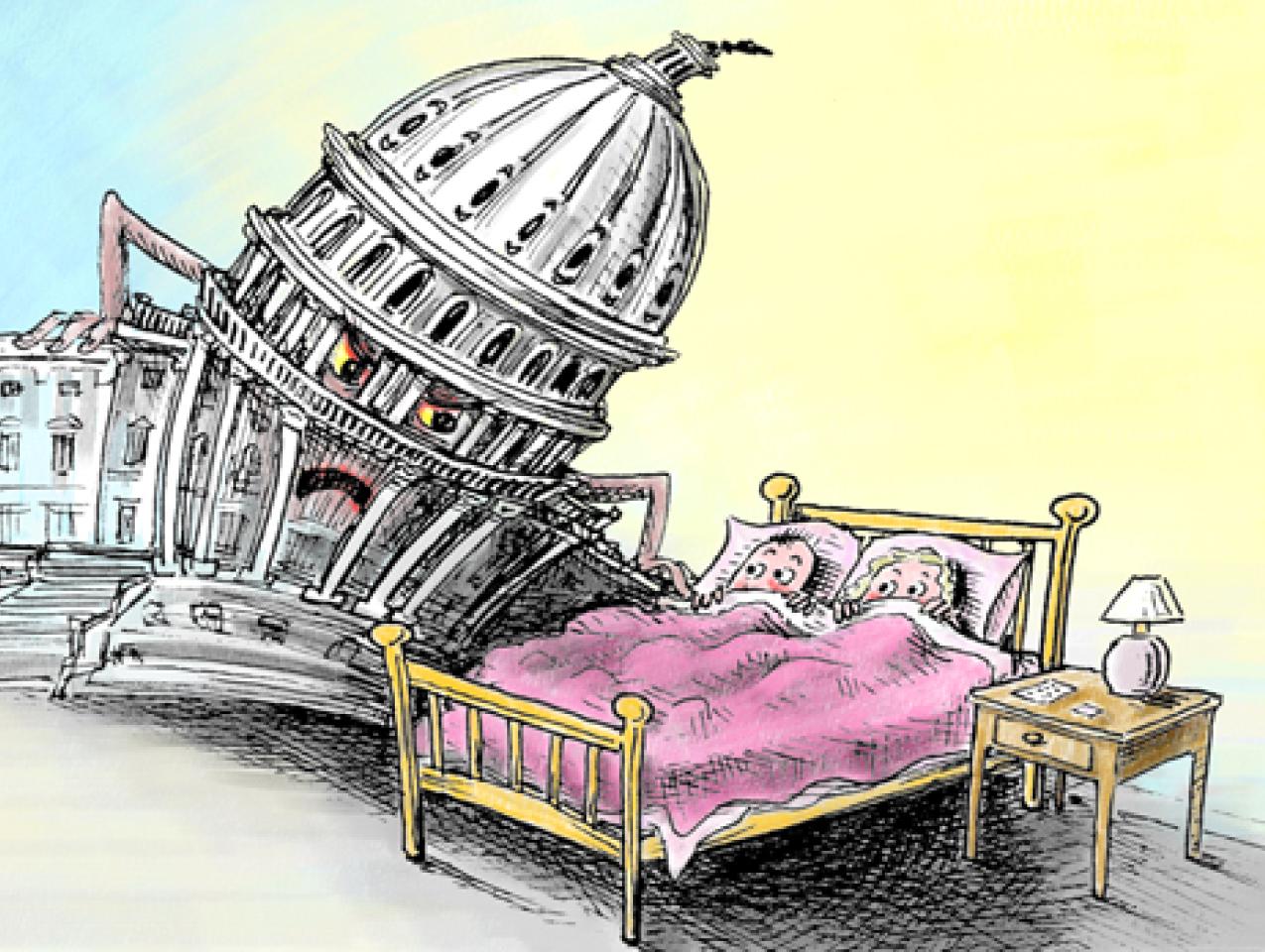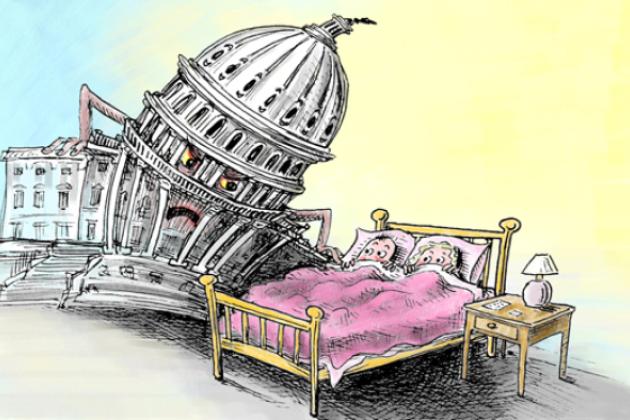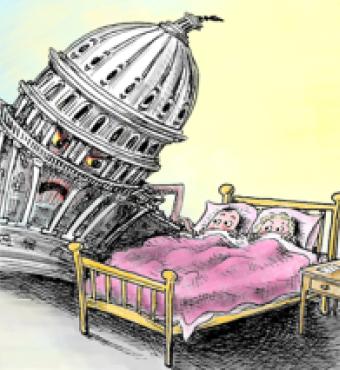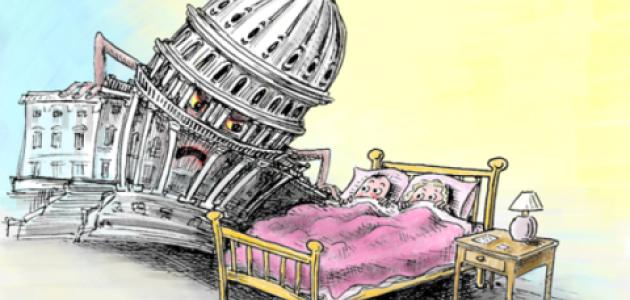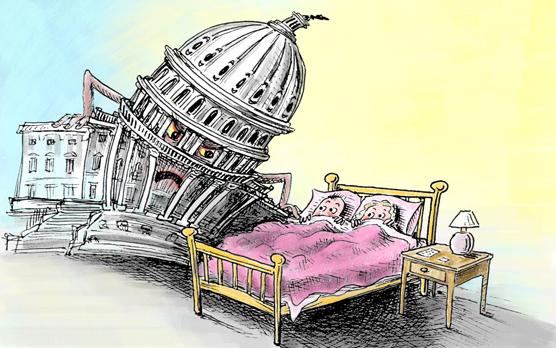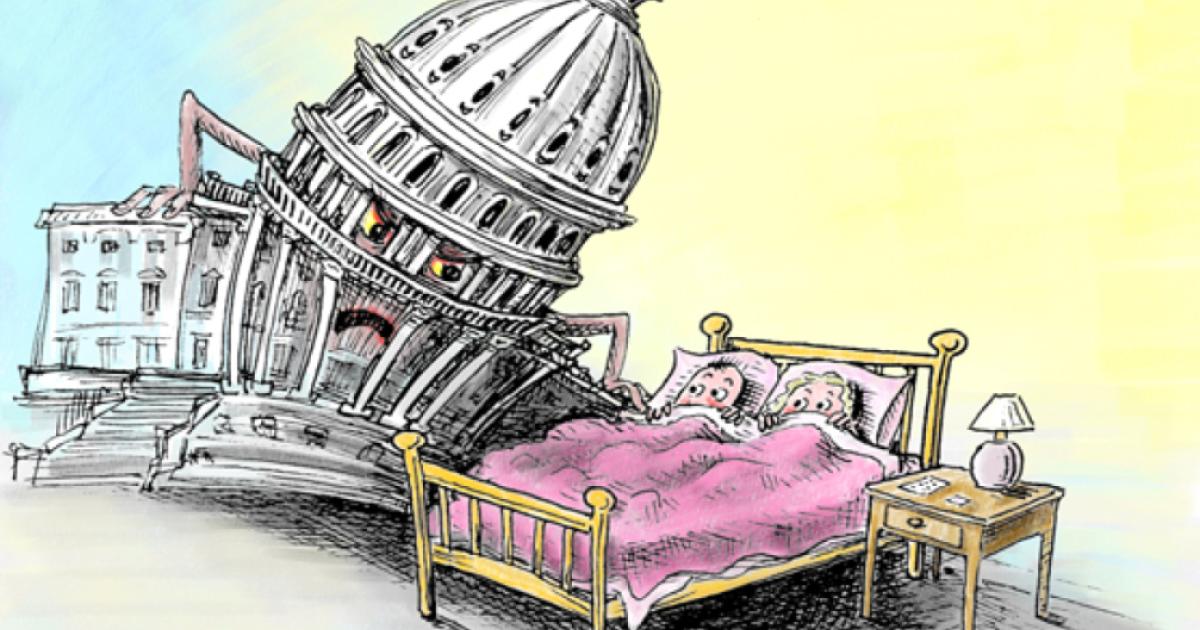- Law & Policy
- Regulation & Property Rights
- Economics
For decades American politics has been poisoned by the great abortion debate. Never mind that the economy is in the dumps, the national debt is spiraling out of control, the nation’s infrastructure is crumbling, health-care costs are rising (even faster with the onset of Obamacare), and each year our kids learn a little less than they did the year before. So candidates for public office better know where they stand on abortion, because they will be asked again and again. And they better not flip-flop on the issue.
Now, lo and behold, contraception has yet again surfaced as the social policy issue of the day. So, candidates for President of the United States better know where they stand. Making contraception center-most in the campaign for president in 2012 is like making a black-and-white, silent movie in the twenty-first century: Who would guess that it would win the Oscar for best picture? And who would guess that forty-seven years after Griswold v. Connecticut, contraception would make a return to the silver screen of national politics.
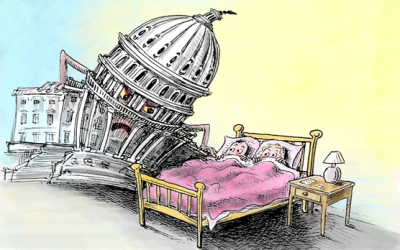
Illustration by Barbara Kelley
Before candidate Rick Santorum resurrected the long moribund topic of the acceptability of contraception, the question du jour was whether the Obama administration’s newly promulgated rule on the provision of contraception services violates religious freedom or supports the freedom of women to control their reproductive lives. Now the question is whether the government has a role in regulating contraception. The response to that question should be: “You’ve got to be kidding! Of course there is no role for government.” But given that the question is now on the front page of every paper in the land, perhaps we can make some lemonade from this lemon.
Almost every American knows that Roe v. Wade (1973) is shorthand for good or evil, depending on where you stand on abortion. But who, save particularly attentive law students, would even recognize Griswold v. Connecticut (1965)? Who, among the general population, or even among members of Congress, knows that Griswold is the case in which the United States Supreme Court invalidated a Connecticut ban on contraceptives because it interfered with the constitutional right of marital privacy? Griswold provided the precedent on which Roe was founded, yet even now, when contraception is again in the news, Griswold remains an obscure case known only to the cognoscenti of the Constitution.
Griswold v. Connecticut was in the full spirit of 1776. It stood and still stands for liberty.
But if we must endure a public debate about the government’s role on the issue of birth control, let’s remember Griswold and the much-maligned (on the right) right of privacy it confirmed. And let’s remember that even a half century ago, the Connecticut statute found to violate that right of privacy was not being enforced and thus stood only as testimony to past restrictions on marital privacy, or perhaps only to past hopes of restrictions on privacy. In 1965, just like today, the reality was that the vast majority of the population relied on contraception to control pregnancy, and few state officials had the stomach for enforcing any laws to the contrary. So why was the law challenged, and why did it make it all the way to the U.S. Supreme Court?
The challenge to the Connecticut statute, along with the Griswold decision itself, stood as symbols for the ongoing struggle to preserve liberty in the face of government interference. The very suggestion, even in the form of an old and unenforced statute, that the government could intervene in the marital bedroom required, in today’s parlance, a “smackdown.” Such a law was an affront to the most fundamental value of the United States Constitution—liberty.
Of course, not everyone agrees with this assessment. Among those who do remember Griswold, all these years later, are strict constructionists (probably including Rick Santorum) for whom the case is the archetype of judicial activism. For them, Griswold was the liberal activist court at its worst, reading into the Constitution rights that are not explicitly there. But this is a view that sees democracy, not liberty, as the Constitution’s core value. It is a view that ignores the written words of the Ninth Amendment that “the enumeration in the Constitution of certain rights shall not be construed to deny or disparage others retained by the people,” and a view that rejects the declaration of 1776 “that to secure these rights, Governments are instituted among Men.”
Notwithstanding its reliance on seemingly non-legal concepts like “penumbras” and “emanations,” Griswold was in the full spirit of 1776. It stood and still stands for liberty. And reflecting on Griswold should remind us that there are three sides in this debate, only one of which is consistent with the core value of the Constitution.
What appears to be the Santorum view, that government should consider reentering the contraception-regulation business, is politically suicidal and constitutionally outrageous. It has been often said that if the Constitution authorizes Obamacare’s individual mandate, there is nothing beyond the reach of federal regulation. It might also be said that if the Constitution does not prohibit government regulation of marital privacy, there is no liberty free from government restraint.
Accepting the violation of one liberty to safeguard another threatens them all.
Though the Obama administration purports to be promoting liberty and acting in the spirit of Griswold, it is not the liberty of conscience and privacy it advocates. Rather, the administration insists on an affirmative liberty of publicly provided or mandated benefits. But it is one thing to say that there is a constitutional liberty to use contraceptives and it is quite another to say that there is a constitutional liberty to have those contraceptives or any other benefit provided, at the behest of the government, free of cost. The Constitution neither says nor implies that such affirmative rights exist, and Griswold did nothing to suggest otherwise.
Ironically, only the claim of the Catholic Church, and others objecting to the mandated provision of contraceptive services by religiously-affiliated institutions, is consistent with the constitutional philosophy that undergirds Griswold. The theory of the case does not yield only a narrow right of access to contraceptives. The case stands for freedom from government interference in our private lives. Freedom of conscience and personal privacy are one and the same thing. You don’t have to compromise one for the other. Freedom of conscience implies the freedom to do as your conscience dictates and to respect the same right in all others. The Catholic Church is not demanding that the government interfere in the private choice to use contraceptives. Rather, it is insisting that the government is constitutionally prohibited from forcing the Church, and people of common conscience, to be complicit in that exercise of liberty by others.
There is more at stake in this debate than the religious freedoms of those who object to contraception as a matter of conscience. Why is it that 75 percent of the respondents in a February USA Today/Gallup poll believe that the individual mandate of Obamacare is unconstitutional? Certainly not because they are students of the Commerce Clause of Article I, Section 8. People think it will be found unconstitutional because they believe it cannot possibly be constitutional. They know it infringes on their liberties. You don’t have to go to law school or to have clerked on the Supreme Court to know that when the government mandates your purchase of health insurance, your liberties are being threatened.
The administration’s rules relating to the provision of contraceptive services are part and parcel of a massive law that threatens the liberties of Americans in ways they have never before experienced. We can be confident that more of such liberty-restraining regulations are in the offing if the law is upheld by the Supreme Court and not repealed by Congress.
So maybe Santorum has done us a favor after all. By making contraception regulation a topic of public debate, he reminds us that those who claim to be friends of liberty, like the proponents of Obama’s contraception rule, will often be constraining liberty by the very policies they pursue. If we believe in and value liberty, there can be no ranking of liberties, or picking and choosing among them. Accepting the violation of one particular liberty threatens them all.
His argument is rock-solid. But it needs to be made even simpler if it is to prevail against those who—quite deliberately, in my view—turn things upside down and claim that it is an invasion of their rights if others refuse to pay for what they want to do. Why should I be put into financial pain to accommodate their sexual pleasures?
It is indeed ironic that the Catholic Church is forced to defend all of our liberties; doubly ironic that a debate over the great charter of democracy is reduced to a low squabble over subsidized condoms and contraceptives. The statists have much to answer for. So do we all, for not checking them long ago.
---Owen Hughes








